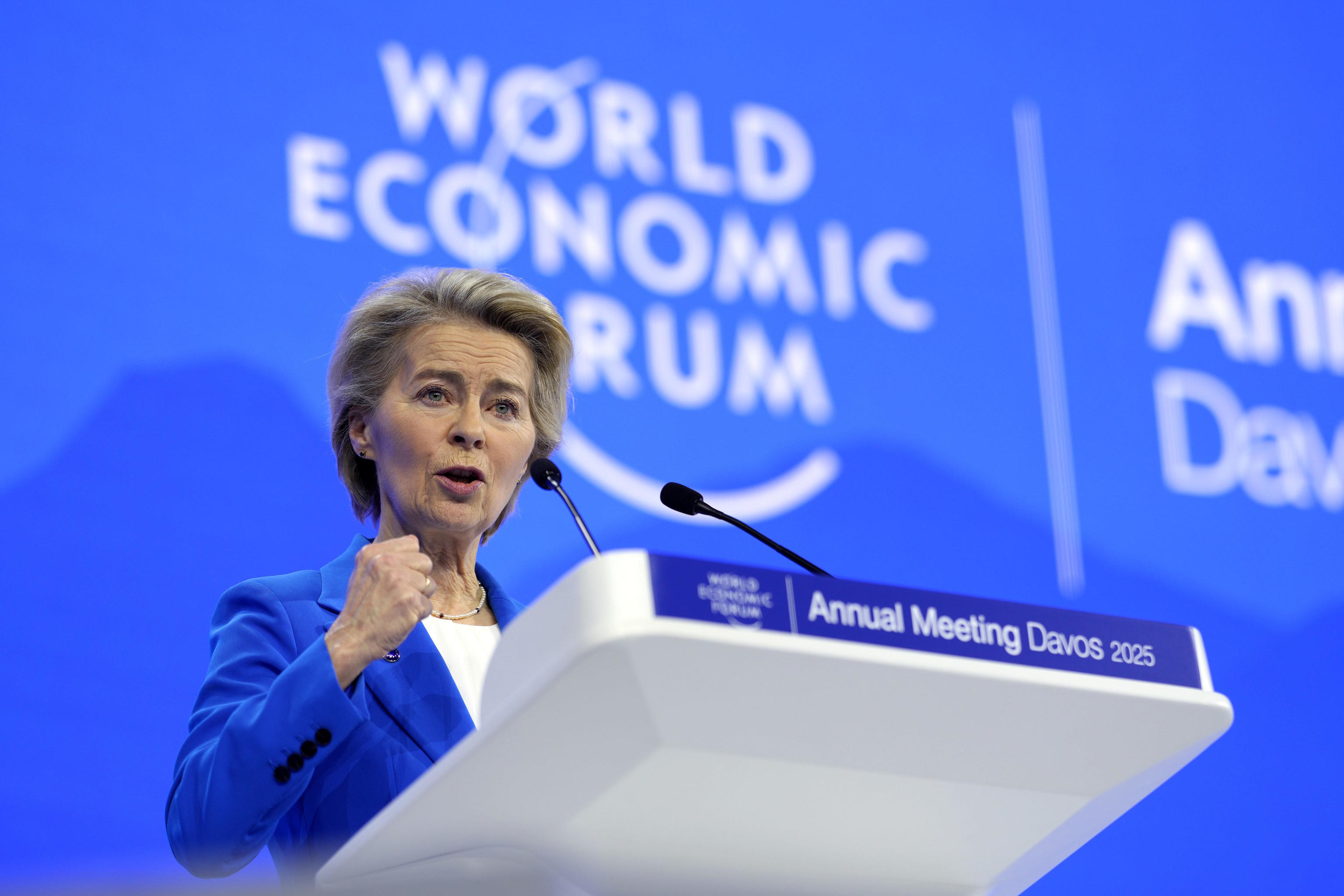The European Union extends a hand to the new US President, Donald Trump, to avoid a trade war and geopolitical conflicts, but without implying the marginalization of China. The President of the European Commission, Ursula Von der Leyen, has set the tone in her speech at the World Economic Forum in Davos, with multinational presidents and major investors from around the world in the audience.
"Our first priority will be to engage early, discuss common interests, and be willing to negotiate. We will be pragmatic," she stated. With what limits? On the one hand, she assured that "we will always stand firm in our principles to protect our interests and defend our values: that is the European style." But, on the other hand, she extended a hand without red lines. "To defend these values in a changing world, we must change our way of acting. We must seek new opportunities wherever they arise. This is the time to engage beyond blocs and taboos. And Europe is ready for change."
She emphasized, however, that Europe has cards to negotiate with Trump. "No other economy in the world is as integrated as ours. European companies in the United States employ 3.5 million Americans. And another million American jobs depend directly on trade with Europe. Entire supply chains extend on both sides of the Atlantic." Furthermore, "of all US assets abroad, two-thirds are in Europe. And the United States supplies over 50% of our liquefied natural gas. The trade volume between us is 1.5 trillion euros, representing 30% of global trade. There is a lot at stake for both parties."
She also extends a hand to China in an attempt to safeguard globalization as much as possible, which, in her opinion, has greatly benefited the European Union. "We must deepen our relationship with China, and when possible, even expand our trade and investment ties. It is time to seek a more balanced relationship with China, in a spirit of fairness and reciprocity," she stated in response to the new line from the White House against the eastern regime.
More openness and cooperation instead of confrontation "is Europe's response to the growing global competition. We want more cooperation with all those who are open to it. And this includes, of course, our closest partners. I am thinking, of course, of the United States of America," she stated. The German leader avoided criticizing Trump and tech giants as other leaders have done, such as Spanish Prime Minister Pedro Sánchez and French President Emmanuel Macron.
On the other hand, Chinese Vice Premier Ding Xuexiang also tries to preserve as much as possible of globalization. Despite representing a country led by the Chinese Communist Party, he advocates for free trade. "Protectionism leads nowhere, and there are no winners or losers in a trade war."
